How to Switch to a New Industry Without Any Experience

As Seen In:




Shifting to a new industry is a bold move, especially when you’re starting without any direct experience. This blog outlines best practices on how to switch to a new industry without any experience by tapping into the power of transferable skills, cultivating a network, and creating a personal brand that resonates across different sectors.
Key Takeaways
- Identify and leverage your transferable skills such as leadership and problem-solving to create a compelling skills-based resume, making you an attractive candidate for career transition.
- Build a strong foundation in your new career by undertaking relevant online courses and certifications, engaging in targeted networking and mentorship, and gaining practical experience through part-time or freelance work.
- Craft standout resumes and cover letters by emphasizing your applicable skills, achievements, and learning adaptability, and optimize your online presence via platforms like LinkedIn, industry forums, and a professional online portfolio.
Identifying Your Transferable Skills
First things first—let’s talk about transferable skills. These are the skills you’ve accumulated throughout your life, in various roles, that are universally valuable, regardless of the industry. Here are a few examples:
- Leadership
- Communication
- Problem-solving
- Adaptability
- Creativity
- Time management
- Critical thinking
- Decision making
- Management
- Customer relationship management
- Collaboration
- Public speaking
- Teamwork
Recognizing these transferrable skills can help form the foundation of your skills-based resume and provides a roadmap for your career transition, making it a vital initial to-do.
Analyzing Your Past Experiences
To identify and capitalize on your transferable skills, start by looking back at your previous jobs and experiences. This includes not just formal employment, but also volunteer work, hobbies, and any other tasks where you’ve gained experience. Even if these tasks seem insignificant, they may be highly valuable in your new career.
For instance, if you’ve been praised for your exceptional organizational skills in your current job, this is a strong transferable skill that could be beneficial in many career paths. Similarly, if you’ve consistently been the one to solve challenges in your team, your problem-solving skills will hold you in good stead regardless of your industry.
Skills Inventory
Developing a detailed skills inventory aids in pinpointing your professional competencies, academic qualifications, and experiences pertinent to your intended industry. Start by listing your daily work tasks and responsibilities, then consider which tasks you perform best and which have been recognized and praised by others.
✨Tip: Analyzing feedback from past performance reviews, or asking your colleagues for insight can also help to identify your strengths and transferable skills that were valued by your previous employers and coworkers.
Organize your skills into categories such as technical skills, soft skills, and leadership skills. This will not only provide a visual overview of your skills and proficiencies but will also help you to highlight a wide-ranging skill set when applying for job opportunities.
Matching Your Skills to Job Requirements
After identifying your top transferable skills, your next move should be to align these competencies with job requirements for your preferred career path. Analyze job descriptions in your new industry to determine how your skill set matches the needs of potential employers.
It’s also important to acknowledge and address any gaps in skills or experience. Having a solid plan to minimize the learning curve will not only increase your confidence but also demonstrate to the hiring manager your commitment to adapting to the new role.
Building a Strong Foundation for Your New Career
Having identified your transferable skills and matched them to job requirements, the next step is to build a strong foundation for your new career. This involves gaining a deep understanding of the industry and improving your skills.
Online Courses and Certifications
Online courses and certifications are a fantastic way to learn new skills and demonstrate your commitment to your new career path. Platforms like Coursera and LinkedIn offer a wealth of courses focused on business, technology, data science, and more that equip individuals with job-relevant skills.
In addition, hands-on experience can be acquired through guided projects in digital learning environments, thus narrowing the divide between theoretical knowledge and its practical application.
✨Tip: Don’t forget to showcase your completed courses on your LinkedIn profile to add credibility to your skills and demonstrate your dedication to mastering industry-relevant competencies.
Part-Time or Freelance Work
Part-time or freelance work is another excellent way to gain hands-on experience in your new industry, especially when considering a major career change. By working on diverse projects, you can create a multifaceted portfolio that demonstrates your applicable skills. Moreover, freelancing offers the flexibility to work from anywhere and choose projects that align with your career change goals.
Don’t overlook community involvement and volunteering as avenues for demonstrating and growing skills relevant to your new industry. Unpaid or part-time gigs can provide a stepping stone to a new job, helping you to transition smoothly into your new career by switching careers.
Networking and Mentorship
Networking is more than just exchanging business cards at industry events. It involves engaging in authentic conversations, rekindling dormant connections, and seeking mentorship. Each of these activities can add value to your professional profile and open doors during your career transition.
Keep in mind, networking revolves around fostering relationships, not soliciting favors. Here are some tips to help you network effectively:
- Attend industry seminars and events, and engage with others in a meaningful way.
- Seek mentorship from industry professionals to gain unique insights and advice.
- Celebrate each new connection and informational interview as a milestone in your journey to a new career.
Networking Events and Job Fairs
Networking events and job fairs present excellent chances to build connections with professionals in your intended industry, as well as with prospective employer representatives. These events can help you uncover job opportunities not always available through public job listings, enhancing your job search.
✨Tip: Before diving straight into networking events, we recommend brushing up on top strategies to enhance your personal brand for an effective job search. Having a strong foundation of your personal brand will help you make a stronger, longer lasting impression at industry events.
Be strategic in your networking efforts by focusing on connections that align with your career change goals. As a career changer, remember to follow up with thank-you notes or emails after networking events to demonstrate your professionalism and cement the new connections made.
Crafting a Standout Resume and Cover Letter
Now that you’ve built a strong foundation of transferable skills, industry knowledge, and hands-on experience, it’s time to showcase those assets in your resume and cover letter. Remember, your goal here is to convey to potential employers that, despite your lack of direct industry experience, you have the relevant skills and eagerness to learn and adapt to the new role.
Customizing Your Resume
Tailoring your resume for a career transition requires accentuating your transferable skills rather than your sequential work history. Start with a compelling resume objective that presents your professional experience, skills, achievements, and career goals. Use a combination resume format to highlight your relevant skills above work experience.
✨Tip: Need a bit of resume guidance? Check out our blog that outlines our expert resume writing tips.
Narrow down your work experience to include only the most relevant responsibilities and projects. Enhance your resume by mentioning your active participation in industry groups and tailoring your portfolio for specific job applications. Keep in mind that your resume should dynamically mirror your professional journey, necessitating regular updates as you acquire new skills and experiences.
✨Tip: Tailoring your resume to your specific industry is key. Take a look at our blogs around how to write a sales resume, and how to write a marketing resume. Even if you are going into a different industry, these are solid guides on how to approach a tailored resume.
Showcasing Achievements
Highlighting your achievements is a powerful way to demonstrate your value in a different industry. Use numbers and data when applicable to quantify your achievements. For instance, instead of saying you improved sales, specify that you increased sales by 20% in the first quarter.
When writing your resume, be sure to provide examples of problem-solving and creative solutions from your past roles, outline relevant tasks, and tie in your new industry-specific skillsets.
Writing a Compelling Cover Letter
You may be asking yourself, should I always include a cover letter with my job application? The short answer, is yes – when applicable, this is a great way to further tailor your personal brand and past experiences to your desired role in your new industry.
At a glance, your cover letter should:
- Articulate your unique value proposition.
- Strike the right balance between professionalism and personality.
- Narrate your career transition journey in an engaging manner.
- Articulate the ‘why’ behind your career change.
- Explain how your unique qualities, skills, and past experiences make you an ideal fit for the position.
Remember, a well-written cover letter can distinguish you from other applicants and make your career change journey a successful one.
✨Tip: Looking knock your cover letter and resume out of the park on the first try? Take a look at our list of (Ranked) Top 5 Executive Resume Writing Services.
Utilizing Social Media and Online Presence
In today’s digital world, your online presence can significantly impact your career change journey. Regularly engaging with content related to your desired industry on social media can increase your visibility and demonstrate your commitment to your new field, as well as showcasing your current career expertise.
LinkedIn Profile Optimization
LinkedIn is a powerful tool for professionals looking to switch careers. It can help you connect with industry professionals, discover job opportunities, and showcase your skills and achievements.
To optimize your LinkedIn profile, follow these steps:
- Craft a compelling headline using keywords related to your new industry.
- Incorporate industry-specific SEO keywords in your profile to enhance discoverability by recruiters.
- Emphasize your transferable skills, relevant projects, and quantifiable achievements from past roles in your profile.
- Don’t forget to regularly update your profile to reflect your continuous learning and skill development.
✨Tip: To ensure you are taking the right steps in building out your online presence, check out our blog that dives deeper into Optimizing Your LinkedIn Profile: Tips To Stand Out.
Joining Industry Groups and Forums
Participating in industry groups and forums can offer indispensable knowledge about your prospective industry. Networking with professionals in these groups can help you learn from their experiences and approaches.
Engage actively in these groups and participate in discussions. This will not only increase your knowledge but also demonstrate your commitment to your new industry. Keep in mind, networking revolves around cultivating relationships and gaining insights from others, not seeking favors.
Creating an Online Portfolio
An online portfolio is a visual representation of your skills and achievements. It allows potential employers to see your work and gauge your capabilities.
Use a free website builder like WordPress, Weebly, or Wix to create a professional-looking portfolio. Ensure that your portfolio is user-friendly, consistent with your personal brand, and regularly updated to reflect your continuous learning and skill development.
✨Tip: Be sure to link your professional social media handles and contact information on your portfolio to create ease of access for potential employers and personal brand alignment.
Summary
In summary, changing careers without industry experience is a journey of self-discovery and learning. It involves identifying your transferable skills, building a strong foundation through courses and networking, crafting a standout resume and cover letter, and leveraging your social media and online presence. Remember, every step you take toward your new career is a step toward personal growth and fulfillment.
Q&A
How do you transition to a new industry?
To transition to a new industry, it’s important to identify your motivation, assess your transferable skills, invest in yourself, set realistic goals, update your personal branding, and application materials. Additionally, consider researching the new industry, identifying transferable skills, seeking mentorship, gaining practical experience, and being adaptable and open to learning. It’s also beneficial to research other industries, identify transferable skills, consider related training, review job descriptions, update your resume and cover letter, and plan to explain your change.
What are transferable skills and why are they important in a career change?
Transferable skills are crucial in a career change as they are universally valuable across industries, including leadership, communication, problem-solving, and adaptability. Identifying and emphasizing these skills is essential in guiding your career path.
How should I customize my resume for a career change?
Focus on emphasizing your transferable skills and use a combination resume format to highlight them. Narrow down your work experience to include only the most relevant responsibilities and projects. This will make your resume more appealing to employers.
Ready to Start Your Career Journey Into a New Industry?
We are here to help! Our dedicated team here at ResumeSpice may be known for being the #1 rated resume writing service in the US, but we do much more than that. Our team is here to help you feel confident in yourself and your skillset and totally prepared to stand out in the job market. From helping guide you in building out your personal brand, to working with you on customized interview prep, tailored career coaching, professional LinkedIn profile writing, and more, we are your resource! Check out all of our career services here, and give us a call at 832.930.7378 or connect with us online.










